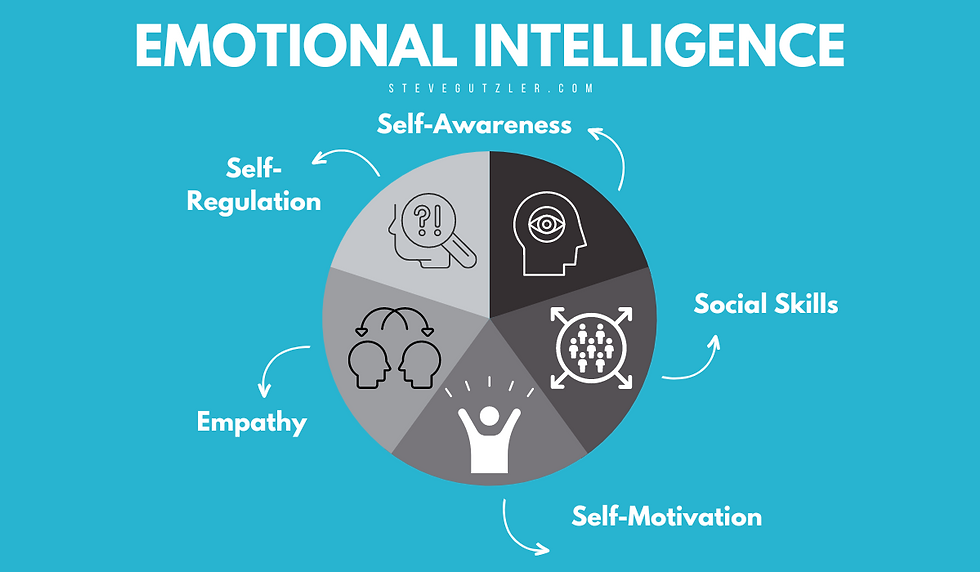Emotional Intelligence - The X Factor
- ektalakhera1
- Mar 23, 2024
- 3 min read

The importance of emotions has always been downplayed at work. Smart people at work are often depicted as being stoic and indifferent.
We are now realising how emotions play a part in almost every choice we make. It's time we acknowledge that there is a need to develop tools to better handle our emotions rather than saying there is no place for them at work. But emotional maturity isn’t the correct word, psychologists refer to it as ‘Emotional Intelligence’. According to the psychologists Salovey and Mayer, “Emotional intelligence is the ability to perceive emotions, to access and generate emotions so as to assist thought, to understand emotions and emotional knowledge, and to reflectively regulate emotions so as to promote emotional and intellectual growth.”
Our life is a graph of up’s and down’s and this is significant to everyone on this planet. Most of us have had a time when we questioned our strengths and weaknesses and having those times of self-questioning is a testament to that. But do you know what? Assessing our strengths and weaknesses, motivation, values, and goals, and how they affect our behavior and thoughts is a journey we take to become self-aware, and being self-aware is a part of being emotionally intelligent.
How many of you thought that emotional intelligence is about understanding other people, not us?
Explained by another psychologist Daniel Goleman are five pillars of emotional intelligence,

Self-management is how well you manage yourself and your emotions and not vice versa. If you strongly disagree with your boss in a meeting and your energy is drained after working overtime the other night, either you can shout on the meeting board out of frustration or manage your emotions and look for a healthy way and time to release your emotions.
Self-awareness is being aware of yourself, your strengths, weaknesses, aspirations, motivation, emotions, and goals. It is like the ability to identify your emotions whether you are sad or angry during a breakup.
Motivation is the driving force behind our actions and behaviour we engage in to achieve our goals and motives are what keep us going to achieve our goals. People with low motivation tend to be anxious and avoid engaging in different activities which may lead to feeling negatively about their goals and impact their self-confidence. People with high motivation are driven to achieve their goals and always look for a way to achieve and to do better. They are also very committed and always ready to take initiative.
Empathy is the ability to feel what the other person is feeling and understand things from their point of view. Empathy allows you to create a deeper connection and remove any judgment for the person in front of you.
Relationship management is all about understanding the emotions and feelings of others. Being able to interact with others is regarded as an important emotional intelligence skill that is inclusive of persuasiveness, active listening, and non-verbal communication skills to develop a stronger understanding of people and yourself.
This is what emotional intelligence is all about. Understanding the social settings and social relationships, knowing your strengths and weaknesses so that you take work that is doable for you. Motivate others while being an empath at times of distress because the corporate world is as stressful as navigating a labyrinth while being blindfolded.
But wait.. emotional intelligence can be a good tool to help navigate this labyrinth.



Comments